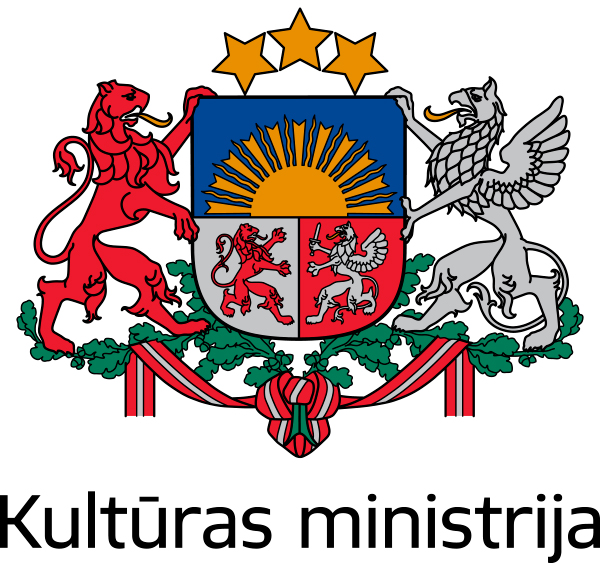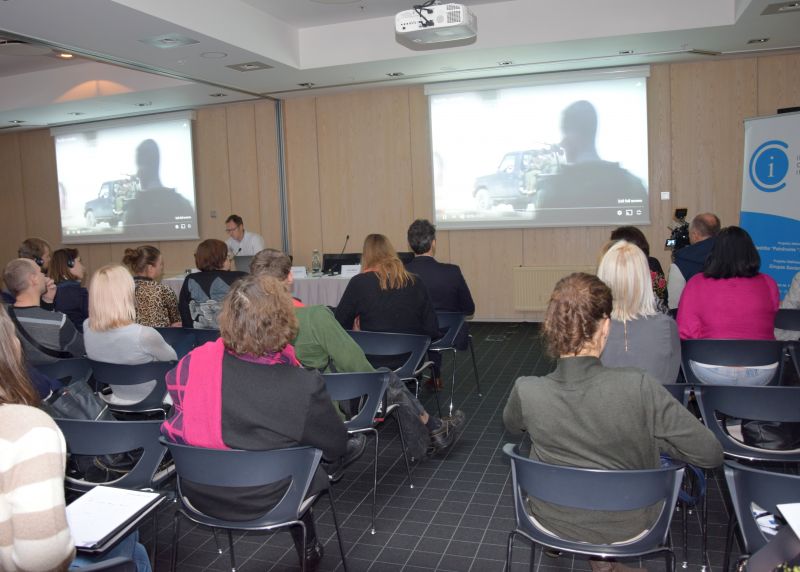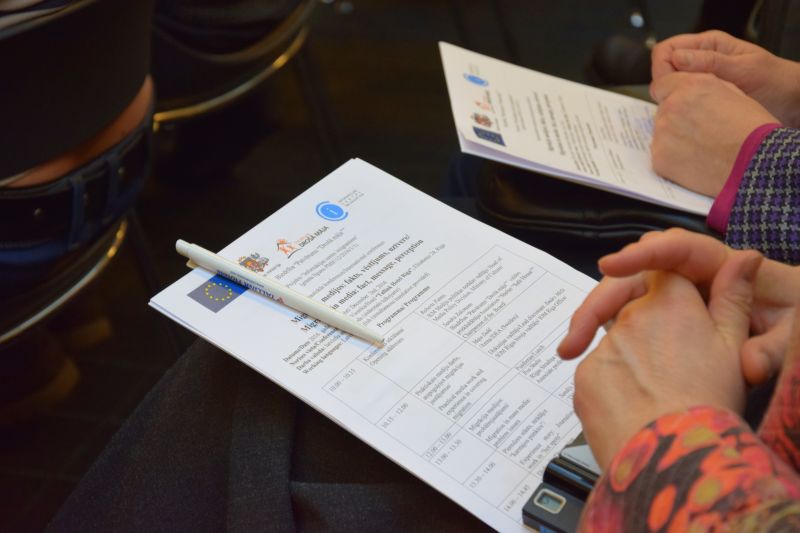
In the opening speech of the conference, Roberts Putnis, Head of the Media Policy Department of the Ministry of Culture, emphasised aspects of interaction of the society and media, as well as mentioned the duty imposed by laws of Latvia on the public media in integrating the society. “The legal regulatory framework of the public order stipulates that media are no just a space for public resonating. The legislator of Latvia took it a step further and — similarly to solutions of democratic societies close to us — assigned the public media to integrate the society. Likewise, a relevant legal norm stipulates a duty for the public media “to promote the participation of representatives of different groups of society in the development of programmes and content”, as well as “to ensure broadcasts for minorities. These work tasks of the media stipulated by law impose a huge load of responsibility on the content makers of these media, i.e. journalists and editors”. He indicated that the Ministry of Culture, in working in extensive working groups of professionals for a year and a half on the Media Policy Guidelines, which have just been approved by the Cabinet of Ministers, had to conclude, among other things, that the professional quality of media, establishment of standards of ethics and education of media professionals were crucial priority directions, wherein the active political actions of the state was necessary. R.Putnis informed that it was planned to develop the new administration of the public media with institutionalised quality management and determination of accountability by 2018. “Looking to the future, I attempt to forecast that the media environment will not become any simpler; therefore, such kind of conversation as today is highly crucial and necessary”.
Based on the long-term experience of “Shelter “Safe House”” in work with third-country nationals, the head of the society Sandra Zalcmane expressed an opinion that the explicit majority of residents of Latvia had never encountered immigrants in real life, “hence, their opinion, often insecurity or even fear, is mostly shaped by media. Now in particular, the role of media in reflecting these topics has never been so important”. Likewise, in her opinion, the documentary fact, the media message and the audience perception are not symmetrical.
The focus of the conference was the practical work of media in reflecting and analysing migration issues. Issues of the topics were examined from the academic perspective as well, while the journalist and documentary film-maker Sandijs Semjonovs shared his experience in working in “hot spots” across the world — Somalia, Afghanistan and elsewhere.
Maja Dahl, representative of the Swedish Holding Arena Ide, in her plenary report provided an insight into the Swedish mass media system, as well as described the alternative world of Internet media, which often expresses racist opinions exactly in relation to migration. Likewise, the rapporteur described the fundamental principles of ethics of the Swedish media. The second part of the report was devoted to immigration in Sweden, where, just as elsewhere in Europe, the number of asylum seekers has rapidly increased over the recent years, which is perceived by many Swedes as a social threat. Sociological surveys suggest that the majority of Swedes considers that media hide the truth about the extent of immigration and dissemble the actual statistics of crimes committed by immigrants. The content analysis of publications, in turn, suggests that a neutral perspective is the most widespread in media; moreover, in the remaining part, negative attitude towards immigrants explicitly dominates over the positive reflection of immigrants. Over time, negative attitude becomes more frequent, while neutral attitude decreases. Likewise, the interest of Swedish media in the “refugee crisis” somewhere else is insignificant — it is perceived almost only as a Sweden’s problem. Last October, Swedish politicians agreed on determining stricter immigration requirements, enhancing border control and restricting family reunions of immigrants. Media have widely reflected these amendments to laws and — for the most part — supported non-critically. The voice of immigrants themselves in mass media is practically not heard.
Ilva Skulte, associated professor at Riga Stradiņš University, in her presentation examined the main media issues related to the reflection of migration in aspects such as selection of news to be published, choice of terminology to be used, framing of news — selection and layout of titles and illustrative materials, expression of journalists’ and experts’ emotions, honest admission of own ideological position, and choice of commentators and interviewed experts.
The conference ended with a panel discussion of rapporteurs under the lead of Roberts Putnis. Experts shared thoughts on the point of their work, responsibility of media and the fact whether journalists can and need to distance themselves from the heroes of the materials prepared by them.
The project “Information Centre for Immigrants” co-financed by the European Union within the framework of the Asylum, Migration and Integration Fund.Grant Agreement No.PMIF/12/2016/1/1.
Information was prepared by: Rasa Salina (Rasa Saliņa), Communications and Social Media Expert, phone: 22026355, e-mail: rasa.salina@gmail.com































